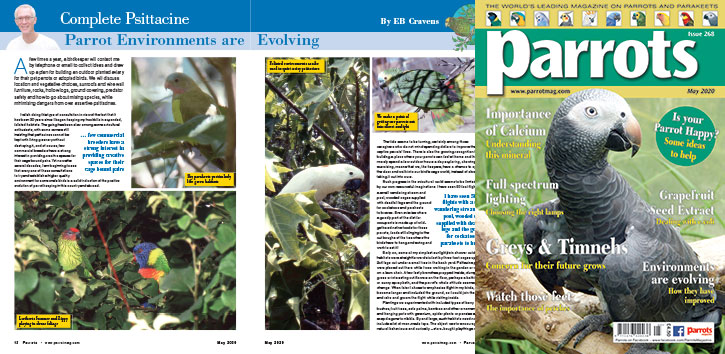
Complete Psittacine by Eb Cravens
A few times a year, a birdkeeper will contact me by telephone or email to collect ideas and draw up a plan for building an outdoor planted aviary for their pet parrots or adopted birds. We will discuss location and vegetative choices, sunroofs and wire wall furniture, rocks, hollow logs, ground covering, predator safety and how to go about mixing species, while minimising dangers from over assertive psittacines.
I relish doing this type of consultation in view of the fact that it has been 30 years since I began keeping my hookbills in expanded, foliated habitats. The going has been slow among some avicultural enthusiasts, with some owners still insisting that psittacines cannot be kept with living greenery without destroying it, and of course, few commercial breeders have a strong interest in providing creative spaces for their cage bound pairs. Yet now after several decades, I am beginning to see that every one of these consultations to try and establish a higher quality environment for someone’s birds is a solid indication of the positive evolution of parrot keeping in this country and abroad.
The tide seems to be turning, certainly among those caregivers who do not mind spending dollars to improve their captive parrots’ lives. There is also the growing recognition that building a place where your parrots can feel at home and live, or merely spend a few outdoor hours a day exploring, chewing and exercising, means that we, the keepers, have a chance to open the door and walk into our bird’s cage world, instead of always taking it out into ours.
